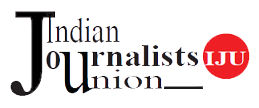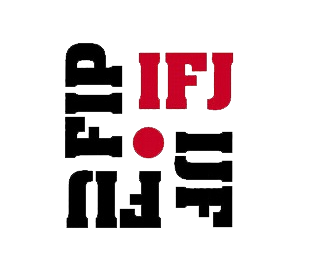For a woman in journalism, the challenges are vast. She faces society’s ingrained biases and encounters additional challenges due to her gender. We have to accept that media has always been a patriarchal field like many other fields ever since its inception. Albeit the situation has changed over the years and women in media have been able to prove that she can make it and also overcome the challenges. But still there are far more miles to go to make it a free and unbiased profession for women. The number of women as media administrators or even journalists is still lower than that of their male counterparts. Like in many other professions, the under representation of women in media is still an issue much talked about.
In spite of all odds women in Assam in journalism have been able to make their own mark with firmness, dedication and of course, hard work. The Gender Council of Journalists Union Of Assam (JUA) in its informal and open discussions found these unanimous views. Veteran journalists with over three decades of experience have expressed concern that the challenges have mostly remained unchanged.
In one of such discussions organized by the Gender Council, the participating women journalists opined that social challenges were manifold, in many cases right from the family, the neighbourhood and society at large. According to some women journalists, challenges also were multiple in the profession itself, right from convincing the management that she is equivalent to her male colleagues for the hardcore reporting such as politics, law and order, insurgency etc.
Many are of the view that they had to fight at every step to getting equal pay for equal work. ‘Many times we were being denied news coverage of outstation important events on the ground of gender. At times, women journalists are given the task of soft reporting only. But in my case, I have always raised my point and went ahead,’ said one woman scribe of the city. According to many women scribes in the state, being assertive is the Mantra. One woman reporter from a rural area of Assam said, ‘In many cases we have to fight for equal pay. Many of my fellow women colleagues had expressed that they faced the same discrimination in their respected organizations, and they had to take up the matter with their bosses.'
Despite all the problems and discrimination, women in journalism in Assam are assertive in overcoming these hurdles through their work. In this regard a senior journalist of the state pointed that the women journalists have to be very firm in their approach whenever their rights are denied and do extremely well in their work so that the authorities in respective organizations are bound to give them due respect and credibility.
I feel compared to other parts of the country, Assam and Northeast as a whole bears a society that respects women. The status of women in north-eastern region of India is slightly different in comparison to those living in the rest of the country. In Assam, the status of women is high in comparison to the women of some other States of India. Although not all is well with women in Assam in the present times, but the situation is not that grim to get disheartened.’
The greatest challenge today is to improve the status of women who constitute half the population of the country. The representation of women in Parliament and State Legislatures is very less. The scenario is same with the women participation in Media in Assam. We need to encourage more and more women to get engaged in the profession to increase women representation in Media. For this our Union should take a special drive that can encourage and enhance the sustainability of womenfolk.
The biggest challenge remains that many women join the profession but could not sustain and had to leave the field unwillingly. There many reason behind it. Many leave the profession after they were married, and in many cases they did not get the family support due to the ‘bit erratic’ time schedule. Working late at night is not ‘permissible’. In such hostile situation, many cannot deal with it and finally get de-motivated and leave.
Here in Assam, the Gender Council is trying to talk to such journalists whenever the matter comes to our notice. We have arranged closed door discussion to get the real feedback where many of our fellow colleagues had divulged their agony. Following the motto of JUA and IFJ, Gender Council in Assam is working for equality in media and fighting against gender bias, discriminations. I strongly feel that our Union should urge all our state unions to form a gender council.
Moreover the International Federation of Journalists (IFJ) Gender Council puts the fight for gender equality at the heart of its work and campaigns. The campaign waged by the IFJ and its affiliates to fight against gender discrimination has achieved considerable progress. But women are still suffering from an unequal access to employment in the media industry. Women journalists face a wide range of gender-specific obstacles and human rights violations, including discrimination, sexual harassment and assaults. There also remains the challenge of reducing the pay gap between men and women at the workplace.
Furthermore, women are more likely to be victims of serious forms of violence such as sexual harassment and rape. Therefore the Gender Council is actively working in this regard. To be mentioned here, I have been elected as the member of Steering Committee of IFJ Gender Council in the recently held election.
Whatever may be the obstacles, we have to fight, we have to work hard by breaking the taboos and show that we are the winner. We must win the situation and march ahead.
-
Samim Sultana Ahmed
(The writer is President, Gender Council, JUA & Steering Committee member, Gender Council, IFJ)




